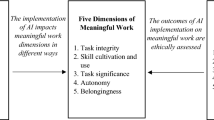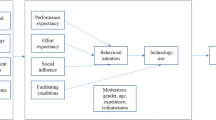Abstract:
In this paper we argue that substitution-based function allocation methods (such as MABA-MABA, or Men-Are-Better-At/Machines-Are-Better-At lists) cannot provide progress on human–automation co-ordination. Quantitative ‘who does what’ allocation does not work because the real effects of automation are qualitative: it transforms human practice and forces people to adapt their skills and routines. Rather than re-inventing or refining substitution-based methods, we propose that the more pressing question on human–automation co-ordination is ‘How do we make them get along together?’
Similar content being viewed by others
Author information
Authors and Affiliations
Additional information
Correspondence and offprint requests to: S. W. A. Dekker, Department of Mechanical Engineering, IKP, Linköping Institute of Technology, SE - 581 83 Linköping, Sweden. Tel.: +46 13 281646; fax +4613282579; email: sidde@ikp.liu.se
Rights and permissions
About this article
Cite this article
Dekker, S., Woods, D. MABA-MABA or Abracadabra? Progress on Human–Automation Co-ordination . Cognition Tech Work 4, 240–244 (2002). https://doi.org/10.1007/s101110200022
Issue Date:
DOI: https://doi.org/10.1007/s101110200022




